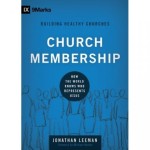Solid Joys have been central in my walk with Jesus for the past year. Daily, the team at Desiring God posts a devotional reading. Desiring God describes Solid Joys as a “daily devotional app from the ministry of John Piper.” It can be accessed through DesiringGod.org as well as the App Store and Google Play. Every day the app provides a scripture passage along with a short reading from one of John Piper’s books or sermons or articles.
Last November 16th was a devotional using I Peter 5:7 about anxiety. It was powerful in my life including the call to “make war, not with other people, but with our own unbelief”…which is the “root of anxiety.” Also on anxiety, using Matthew 6:30 on November 4th Piper writes, “the root of anxiety is inadequate faith in our Father’s future grace.” Using Hebrews 10:14 on January 4th I read about salvation as, “not the boast of the strong. It is the cry of the weak in need of a Saviour.” I struggle with irritability and last week I read: “And your agonizing, unplanned detour is not a waste – not if you look to the Lord for his unexpected work, and do what you must do in his name (Colossians 3:17). The Lord works for those who wait for him (Isaiah 64:4).”
The app is relatively simple and its simplicity is part of what I love about it. The reader is not bombarded by endless articles and videos and audio files. You just pop it open once a day during your prayer time. However, initially the app had an x-ray mode that enabled the reader to view the article with a black background and white letters. In a recent upgrade the did away with the x-ray option, which I preferred.
I use the app during my daily devotional time. I don’t use it every day, but most mornings I take a couple of minutes to read the passage being referenced then read the article. John Piper certainly isn’t Jesus, but I have been blessed by his insights and theology since college.
If you are blessed by books like “Desiring God” and “Future Grace” and “Brothers, We are Not Professionals” and “Don’t Waste Your Life,” then you will be encouraged by Solid Joys. Make it part of your daily walk with the Lord!





